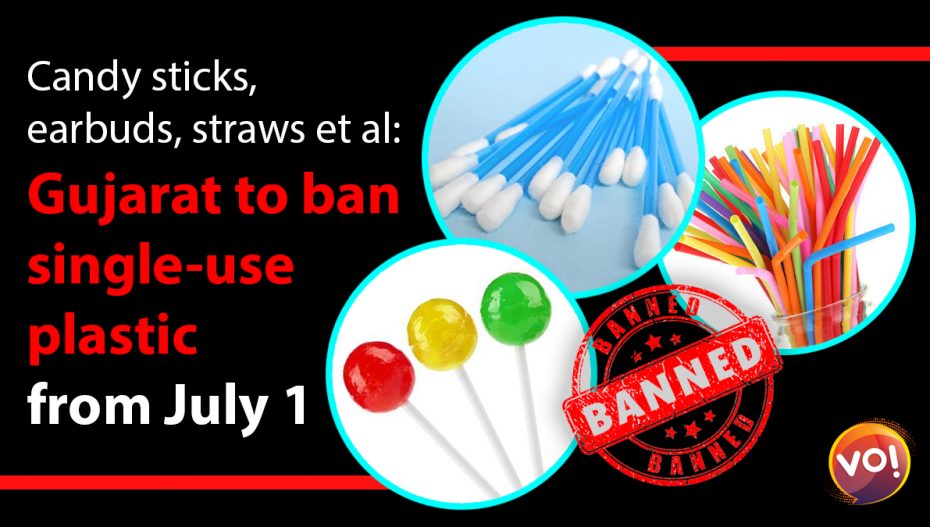As announced by the Central Government last year, the Gujarat Government will implement the ban on single-use plastic from July 1.
According to the Centre’s draft gazette notification that announced the ban, the items to be banned include earbuds with plastic sticks, plastic sticks for balloons, plastic flags, candy sticks, ice-cream sticks, polystyrene (thermocol) for decoration, plastic plates, cups, glasses, cutlery such as forks, spoons and knives, straw, trays, wrapping films around sweet boxes, invitation cards, and cigarette packets, plastic or PVC banners less than 100-microns and stirrers.
The ban will not apply to commodities made of compostable plastic.
“The manufacture, import, stocking, distribution, sale and use of… single-use plastic, including polystyrene and expanded polystyrene commodities shall be prohibited with effect from the 1st July, 2022,” the Union Environment Ministry’s notification on the Plastic Waste Management Amendment Rules, 2021, stated.
While polythene bags with thickness less than 50 microns are already banned in the country, the Central Government has chalked out a phased manner of banning-single use carry bags as well as other commodities.
According to the phases, polythene bags under 75 microns were banned from September last year and those under 120 microns were phased out by December 31, 2021.
According to the Union Environment Ministry, it is eliminating the plastic for which the cost of collection is huge and against the high environmental cost, the economic cost is little.
The main problem was that many plastic commodities were not being collected and recycled. Environmental experts have found that rag-pickers find thicker plastic bags have a higher value than thinner ones. Plastic bags with higher thickness are more easily handled as waste and have higher recyclability.
The Union Environment Ministry informed that there were already alternatives for plastic cutlery available in the market and the government would ensure that companies producing these alternatives are promoted.
For banning other plastic commodities in the future, other than those that have been listed in this notification, the government has given the industry 10 years from the date of notification for compliance.
Officials say this has been a demand that the industry has made, and that it has been accepted taking into consideration the capital cost of changing from plastic to an alternative material.
The Central Pollution Control Board, along with state pollution bodies, will monitor the ban, identify violations, and impose penalties already prescribed under the Environmental Protection Act.
Read More: Kejriwal Forays Into BJP’s Fiefdom Mehsana, Receives Warm Welcome













